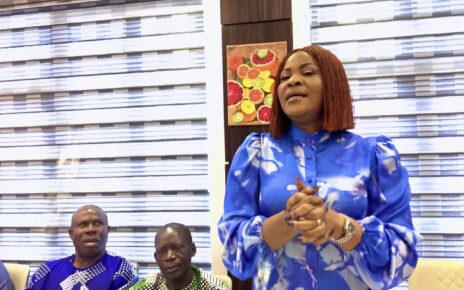By Ukpong Ukpong
The recently concluded Niger Delta Development Commission Public-Private Partnership Summit, held in Eko Hotel and Suites, Lagos marked a watershed in the eventful history of the interventionist agency. It heralded a significant shift in approach by the Commission towards sustainable development of the region. The initiative, driven by a management that believes in renewing trust among stakeholders, was daring and different.
The summit offered a platform for stakeholders of the Niger Delta region, including captains of industry, international oil companies, relevant government agencies, private sector and interest groups to interact and explore ways of driving sustainable development in Nigeria’s oil-rich region. It could not have come at a better time than after reforms undertaken by President Mohammadu to reposition the NDDC to actualize its mandate.
The Minister of Niger Delta Affairs, Mr. Umana Okon Umana, while declaring open the NDDC-PPP Summit, on behalf of the Vice President, Professor Yemi Osinbajo, noted that President Buhari’s vision which spurred his rigorous pursuit of reforms in the Commission was to engenders such opportunities for real development to take place.
According to the minister, the president’s directive to reform the NDDC was hinged on repositioning the Commission to be transparent, accountable and to run on the template of global best practices in public governance thus attracting genuine investors and development partners.
“We set in motion an era of accountability and transparency by publishing in national newspapers a list of 2,506 completed projects executed by the Commission under the Buhari administration from 2015 to 2022. The feedback to this level of commitment to openness in public governance has been tremendous.”
“Today, we are witnessing an enthusiastic response by stakeholders and development partners to an invitation to dialogue on the development of the Niger Delta because there is trust in public institutions that are run according to law and due process.
“Public-Private Partnership would not be realistic in a government institution that is burdened with trust deficit.
Leveraging on the rebirth of the NDDC, the management team sought to lay the foundation for building a sustainable future through Public Private Partnership to open investment opportunities and reduce reliance on funds from Federal Government for rapid progress in the Niger Delta. In the words of the Managing Director of NDDC, Dr. Samuel Ogbuku, the summit presents a paradigm of collaboration that seeks alternative funding as the NDDC needs more than what is available inorder to shoulder the enormous responsibilities of developing the Niger Delta region.
In ensuring that all investment partners and stakeholders are on the same page, Ogbuku said “we have resolved to make our 2024 budget an all-inclusive one that accommodates the interests of all key players in the Niger Delta region. To achieve this, we have charged our Budget Committee to give stakeholders the opportunity to tell the NDDC the kind of projects they want in their areas, so that they can be included in our budget.”
Indeed, this new approach would deepen stakeholders’ involvement and strengthen partnership as it is important to engage them in projects conceptualisation and execution. Moreso, the Commission would benefit from oil producers working in the communities who most times have first-hand information of the needs of the local people.
“We want them to engage with us in project selection. Also, we need the oil producers to sometimes avail us with their technical expertise in project management and monitoring. In other words, we are embarking on this journey of developing the Niger Delta with the full participation of all stakeholders.”
Ogbuku further revealed “we can access government resources, policies, and programmes that support our development objectives. We are keen on more collaboration with state and local governments to implement programmes and projects that address their communities’ specific needs”.
Of course, the decision to move from competition to collaboration with government of member states was thoughtful because they are strategic stakeholders the Commission cannot overlook. As a matter of fact, right from inauguration, the governing board vowed to collaborate with government at all levels.
In Akwa Ibom State for instance, the Honourable Commissioner representing the state, Dr. Emem Wilcox Wills, is determined to keep the government abreast of activities and programmes of the Commission.
He explained that the best way to intervene and fast track development is via partnership and collaboration, noting that the state government is critical in promoting sustainable development.
The PPP initiative of the NDDC is therefore commendable as it intends to forge common front for sustainable development. Most importantly, partnering state governments, relevant agencies and departments, contributing to state or local government-led initiatives, and advocating for policies that promote growth and sustainable development.





